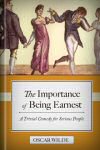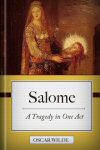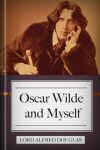Select Works of Oscar Wilde (7 vols.)
Digital Logos Edition
Overview
Writing in the height of the aesthetic movement in Europe, Oscar Wilde rose to the pinnacle of popular society on both the strength of his writing’s biting social commentary and his glittering public persona. He is best known for his novel, The Picture of Dorian Gray; his satirical black comedies, including The Importance of Being Earnest; and a tumultuous personal life that ended with his death in exile and poverty. This collection gathers a diverse array of Wilde’s work, in addition to his classic novel and beloved comedy. The Happy Prince and Other Fairy Tales collects several short children’s stories. The Tocquevillian Impressions of America is an early lecture on American ethics and aesthetics. And De Profundis is a contemplative epistle written from prison, in which Wilde expresses regret over a formerly lavish lifestyle and meditates on his spiritual development.
The digital edition of these valuable volumes are enhanced by amazing functionality. Study Wilde’s texts alongside a library of classic literature and philosophy. Important terms link to dictionaries, encyclopedias, and a wealth of other resources in your digital library. Powerful searches help you find exactly what you’re looking for. Tablet and mobile apps let you take your study with you. With Logos, the most efficient and comprehensive research tools are in one place, so you get the most out of your study.

Key Features
- Includes classic works from the English language’s foremost representative of aestheticism
- Selects diverse works from throughout Wilde’s career
- Provides insights into Wilde’s tumultuous personal life through Alfred Douglas’ autobiographical volume, Oscar Wilde and Myself
Product Details
- Title: Select Works of Oscar Wilde
- Volumes: 7
- Pages: 1,542

Considered by many to be Wilde’s magnum opus, The Importance of Being Earnest follows upper-class individuals who work around stringent Victorian social standards by creating fictitious personas. It satirizes Victorian culture by trivializing grave institutions like marriage.

The Picture of Dorian Gray is Oscar Wilde’s first and only novel. Originally published in 1890, it tells the story of a young man, Dorian Gray, who sells his soul to have his portrait age instead of his own body. The novel was met with outrage by critics due to its hedonistic elements. Wilde’s defense of the work has since achieved a fame of its own.

This volume contains nine children’s stories by Oscar Wilde. “The Happy Prince” is the best known of the stories. The narrative follows a sentient statue of the “happy prince,” adorned in gems and precious metals, who sacrifices his beauty for the suffering poor of the city he watches over.
Contents:
- The Happy Prince
- The Young King
- The Star-Child
- The Selfish Giant
- The Nightingale and the Rose
- The Devoted Friend
- The Remarkable Rocket
- The Birthday of the Infants
- The Fisherman and His Soul

De Profundis is an epistle written by Oscar Wilde from prison. In it he expresses regret over his formerly lavish lifestyle and reflects on his spiritual development. Wilde reflects on Jesus, characterizing him as an artist. It stands in sharp contrast to his earlier works featuring themes of triviality and hedonism.

This volume contains Oscar Wilde’s French-language drama, Salome. Wilde wrote the play hastily in his hotel room in Paris. The narrative follows Salome, the daughter of Herodias, who requests the head of John the Baptist on a silver platter. This edition features Aubrey Beardsley’s English translation.

Impressions of America is a lecture delivered by Wilde upon his return to England from significant time in the US and France. The short essay is full of Wilde’s signature wit, and focuses on American ethics and aesthetics.

This autobiographical volume focuses on the life of Oscar Wilde, and offers a unique personal perspective on his work. It is an excellent opportunity to get inside the mind of the man Alfred Douglas calls the “Lord of Language.”
About Oscar Wilde
Oscar Wilde (1854–1900) is the foremost representative of aestheticism in English literature. Born in Dublin, the son of Anglo-Irish intellectuals, Wilde became fluent in French and German as a child and went on to study classics at Oxford. In his early career, Wilde worked in London as a prolific journalist, lectured, and published poetry. He quickly became a well-known public personality. He published his only novel, The Picture of Dorian Gray, in 1890, and in the early 1890s went on to write several plays featuring the biting high-society satire that brought him to the apex of his fame. In 1895, 15 weeks after the premier of his masterpiece, The Importance of Being Earnest, Wilde was convicted of sodomy and gross indecency. He spent two years in prison, where he wrote the pensive De Profundis. Wilde died of viral meningitis three years after his release, exiled and destitute.
Reviews
2 ratings

Denver Race
11/14/2014

Allen Bingham
6/18/2014

DanielReid
5/13/2014
Sadly this collection does not contain my favourite of his plays, "A Woman of No Importance", which, although not as witty as "The Importance of Being Earnest", nevertheless reflects on redeeming from past sins and love